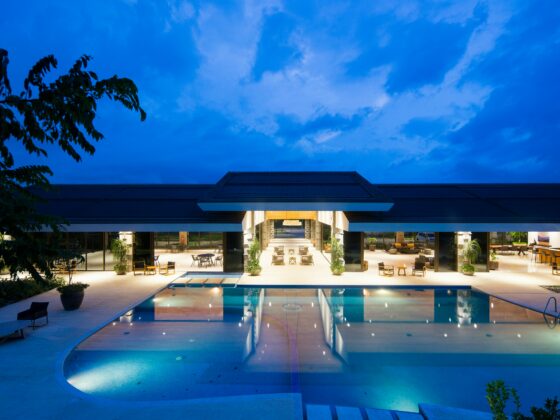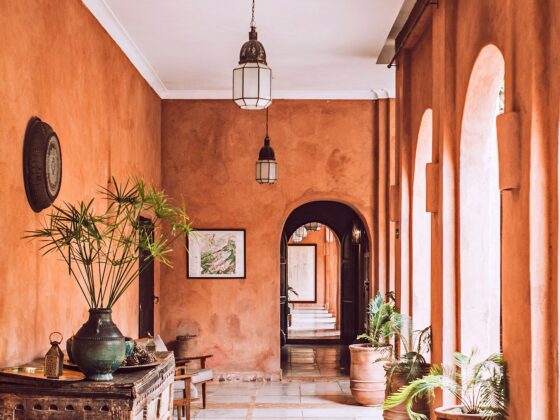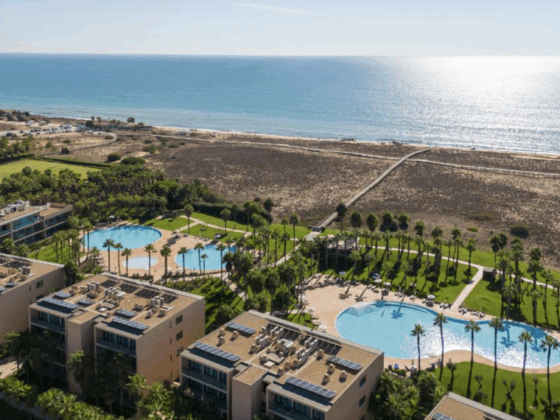TI: Now you’ve experienced the school from the ‘inside’, so to speak, what in your view differentiates Glion from other hospitality and business schools today?
MS: I get asked this a lot, and very often in comparison with our friends up the road in Lausanne! The answer I always give is that we operate to a different scale and, as with luxury hospitality, that lends itself to a more boutique, personalized experience.

What this means for students is that we don’t just care about your professional development; we care about your personal development too. We have to remember that for Bachelor students especially, they are coming to us straight out of high school, often being away from home for the first time in their lives. They have so much development ahead of them and we try to play an active role in supporting that process of personal transformation into confident, well-rounded adults – to become their better selves, if you like.
TI: You mentioned earlier about the heritage of Glion. How do you see this coexisting with the element of innovation that’s also crucial given the rapid evolution of the industries we serve?
MS: The bottom line is that we would not have lasted as an institution for more than six decades without being innovative, so I absolutely believe that these two themes can coexist. As I mentioned, Glion was a pioneer in Swiss-style hospitality education. But also, if you look at the initial student cohort back in 1962 it was only 14 students, but there were something like five nationalities represented. That multicultural student body was pretty groundbreaking at the time, and it’s still a distinctive feature of the Glion experience today.
Our relatively small size also means we can be agile. And I don’t think there’s a better example than when Covid first hit and we had to transform almost overnight from a 100% face-to-face teaching model into an online one. By working closely together, both Glion and Les Roches managed to deliver some highly innovative learning solutions in an incredibly compressed timescale.
TI: Of course, applied research plays a major part in driving innovation in the industry. With that in mind, how do you regard Glion’s initiatives in this area?
MS: For me, it comes down to this idea that yes, we are supplying talents to work in the industry; but we can also help to shape the future development of the industry through the research we do.
We recently launched our Glion Research & Innovation Center (GRIC), plus we’ve also put in place a Hospitality & Luxury Insight Council, with the aim of building closer links between the school and the industries we serve. Our applied research capabilities are now firmly in place, and we’re ready to launch the next phase. You can expect to see a lot more from Glion in this area in the coming years.
TI: You’re a hospitality school alumnus yourself – how important is the Glion alumni network in terms of strengthening the brand’s reach and reputation globally?
MS: For me, it’s all about the added value that the student gets. When you graduate from an institution like Glion or Les Roches it’s not the end of your journey with that school, because you become part of this global network of professionals that’s just an amazing source of help, advice, job opportunities or simply friendship wherever you are in the world.

Plus there’s the impact on current students during Recruitment Days, where they see these incredible brands visiting and the people coming are former students. It’s so inspiring to be able to think ‘I could be that guy someday’. From our point of view, that provides an added endorsement of the education we offer, in the way that former students come back to us to recruit because they trust that they are going to meet great candidates with the skills and attributes to succeed.
TI: You’ve already talked about the values of Glion. As the school continues to evolve under Philippe Vignon’s leadership, what do you feel are the values that are most important to nurture and retain?
MS: I hope as we continue to grow that the personalized nature of what we offer to students remains as strong as it is today. Not having giant auditoriums with 800 students listening to a finance lecture… this is what gives us something different to offer to prospective students today.
It comes back to what I was saying earlier about supporting our students’ personal development as well as building their professional knowledge.

TI: For our final question, we’d like to let you create an ‘elevator pitch’ for Glion! Based on these past few months, how would you encapsulate the Glion experience and what it promises to students and their families?
MS: Great question! I think the beauty of our institution for a student is that it allows you to discover who you are and also to understand the sheer variety of opportunities that are out there for you. We don’t just develop hospitality or luxury professionals; our graduates end up in pretty much every industry you can imagine. And I like to put that down to the transferable nature of the education we provide, but also the fact we encourage students to find the industries and roles that inspire them. That happens through the internships which are part of our programs as well as the variety of experiences that we bring to their attention through things like guest lectures and field trips.
The other important factor to mention is that what you learn at Glion doesn’t mean you’ll step straight from graduation to a managing director role – of course not – but time and again we see graduates moving rapidly up the ranks in their chosen fields, because their studies at Glion provided them with the theoretical knowledge and hands-on practical experience they need to do so.
TI: Mano Soler, thank you for your candor and the very best of luck in your future endeavors!







